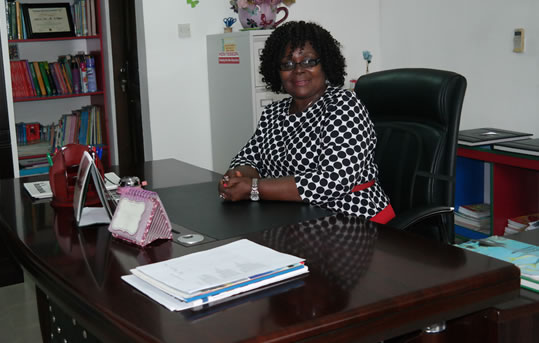
Education Built Around Your Child's Needs

Education Built Around Your Child's Needs
Dove International Schools (Nursery and Primary section) is located in a serene area of Osong Ama, Uyo in Uyo Local Government Area of Akwa Ibom State.
The school is purpose built with large and well-ventilated classrooms to provide a good learning environment for the child. The classroom blocks, the administrative block and the hall/sick bay are linked to each other by covered walk-ways for convenience of the child.
The proprietor of Dove International Schools Limited, Nseyen A. Ukpe (Mrs) is a seasoned Educationist with upwards of 21 years experience in classroom teaching, and school administration in the Primary and Secondary Schools as well as Teachers' Training College.

She has also served in the Mobil Pegasus Primary School, Eket, Akwa Ibom State for a total of 11 years as a Class Teacher, Supervisor and Deputy Headmistress.
She holds the Teachers Grade II certificate, Nigeria Certificate in Education (NCE), and Bachelor of Arts (Ed.) in English/Education. She is also a member of the National Association for the Education of Young Children (NAEYC) in the United States of America.
Given the wealth of experience as a teacher and school administrator, her desire is to contribute in preparing young children for the future. This desire has given rise to the establishment of Dove International Schools Limited (DIS).
The head teacher and the teaching staff are professionals with educational qualifications varying from National Certificate in Education (NCE) to Bachelor of Arts (Ed.), and have wide range of teaching experience in a similar setting, varying between five to ten years.
DIS uses the Nigerian Basic Education Curriculum
from the Federal Ministry of Education and incorporates related US Common Core (CCSS) and the UK Unit Standards to form Dove International Schools Limited Curriculum/b>
.
DIS employs Outcomes-based Education and Training (OBET).
It is a process where teaching and learning is focused on specific learning outcomes. The purpose is to ensure that outcomes in lesson taught are focused on total child; knowledge, skills, and attitudes / values that will enhance higher academic achievement of pupils.
It is an international learning philosophy which has its roots in work on educational objectives, criterion-referenced education and training, mastery learning and a learner-centered approach.
We develop Performance descriptor for each topic (Unit) to complement the Learning Curriculum from the Ministry of Education in order to meet the underlying principles of the OBET which are:
This performance descriptor manual is used by teachers at the time of developing the scheme of work for each term and during the Lesson Planning for the particular lesson to be taught.
To ensure the application of the underlying principles of OBET, the expectation is that:
DIS recognizes the fact that pupils’ ability to acquire the 21st century competencies in critical thinking, complex communication, creativity, and problem-solving skills depend largely on teacher’s effectiveness in the classroom.
To this end, we design and conduct training courses that provide the teacher with the required knowledge, skills, and teaching methodology that enhances the acquisition of the 21st century educational competencies.
These programs include core Educational Leadership program as minimum requirements and others as developmental programs.
New hire teachers are required to complete all the minimum required courses before being assigned a class while the developmental programs are conducted at the beginning of every semester or academic session as may be required.
The school will maintain a high discipline policy that will enable the children build positive self-concept. Children will be taught to resolve their problems using 'conflict resolution' processes.
Where there is conflict, we shall use the following steps to resolve the conflict:
The reasons that a child may be withdrawn from the school are:
Parents who may have concerns on his /her child’s performance in classwork or other concerns are advised to approach the situation calmly using the following complain process:
Based on the result of the discussion with the Class Teacher, Supervisor or the Proprietor:
Do not turn your child against the teacher by casting blame on the teacher or the school in the presence of your child.
Note that the objective is to solve the problem and not to worsen it.